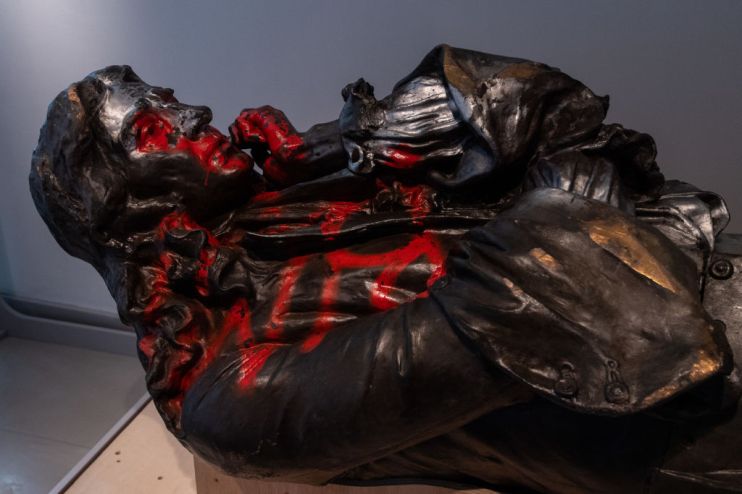The culture wars in numbers: we’re not as divided as we think we are

“These days you get arrested and thrown in jail if you say you’re English, don’t you?” This opening gambit from a taxi driver in a Stewart Lee routine is an extreme example of the belief that speech is increasingly, and literally, policed “these days” – but it works because it reflects a real divide.
The country is split pretty much down the middle on whether we need to be more careful in expressing ourselves, according to a new King’s College London and Ipsos MORI study. 55 per cent think people are too easily offended, while 42 per cent believe we need to change the way people talk. Where you stand on freedom of speech is one of the strongest predictors of where you land on the many fault lines in the so-called culture wars.
There is a clearer consensus that political correctness has gone too far, with Brits most likely to agree with this than people from the other 28 countries surveyed. This is partly, however, reflecting the negative connotations that have built up around the the term, after decades of examples of “PC gone mad” culture. This is not new: 21 years ago, virtually the same proportion thought British society was excessively PC.
Naturally, there are divisions between the ages, with 16-24 year-olds half as likely to be downbeat about our PC culture than their older counterparts. But that has always been the case. It was the same pattern 21 years ago. This isn’t a generational break, where the gap between young and old is of a different scale today than it was in the past, and we have created a uniquely “snowflake” generation today. It’s been there for decades: it is is a natural effect of a social process of generational change that’s never comfortable.
But it is also not nearly as heated nor as much a break from the norm as you’d expect from the media and social media coverage that gives increasing prominence to the extremes.
For example, despite our real concerns, most of us don’t feel inhibited in talking about controversial subjects. Majorities of the public say they would be willing to discuss their opinions on a range of issues – including many that are often seen as divisive – with colleagues or classmates.
People are most likely to shy away from issues such as trans rights. This, however, is not new, it’s just over a new issue. It follows a similar pattern to different issues such as attitudes to the gay community in the past.
Universities have become a focal point for concern over shutting down different views. In the last week alone, two colleges at Oxford University have fallen foul of the lines of the culture wars. Oriel College, was boycotted by academics, after it decided to keep up a statue of Cecil Rhodes, despite his links to the slave trade. Meanwhile, Magdalene College was branded “absurd” by the Education Secretary, Gavin Williamson, for deciding to take down a portrait of the Queen.
While they steal much of the spotlight, this is, in many ways, only fair. Think of how many young people pass through the halls of universities. It is a rite of passage for many and the way we educate our kids and shape their minds is of course going to be subject to huge scrutiny.
People’s instinct is clear: universities should be placed where students are exposed to all types of viewpoints, even if those views are offensive to some. Britons are nearly twice as likely to think this should be the priority, rather than prohibiting offensive or biased speech.
No-platforming is often denounced as a scourge on our universities. But real-world data shows us that no-platforming is rare, even if high-profile examples make it feel much more common. In 2017/18 – the latest year for which official figures are available – 53 events and speaker requests at universities were cancelled, compared with a total of 59,574 events that were approved. And even within this very small proportion that didn’t go ahead, it’s not clear whether they were stopped because of concerns about the views being represented or because of simple administrative issues.
It is not to say there is no problem with cultural division in the UK, it is real, and there are extremely difficult judgements to be made on freedom of speech, some of which we undoubtedly get wrong along the way. An explosion of coverage over the “culture wars” is helping to raise the temperature, alongside Government ministers who are increasingly willing to engage on these issues. We risk following the US path towards intractable conflict by encouraging utterly different world views.